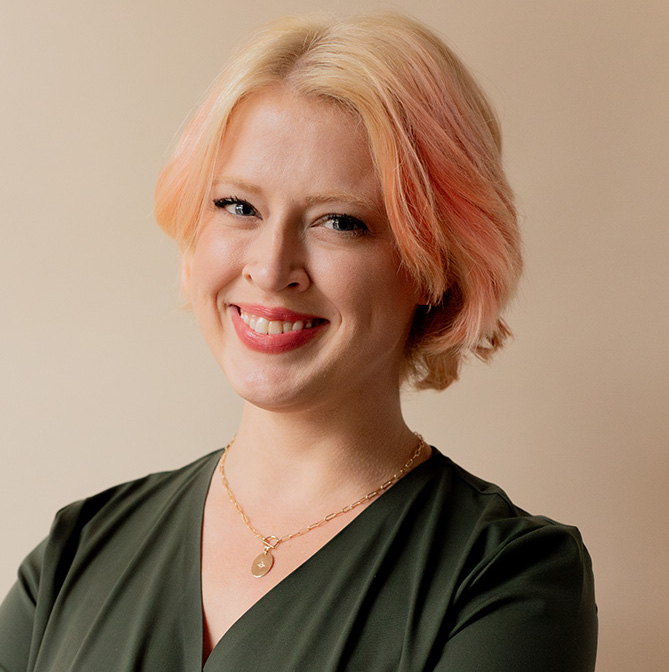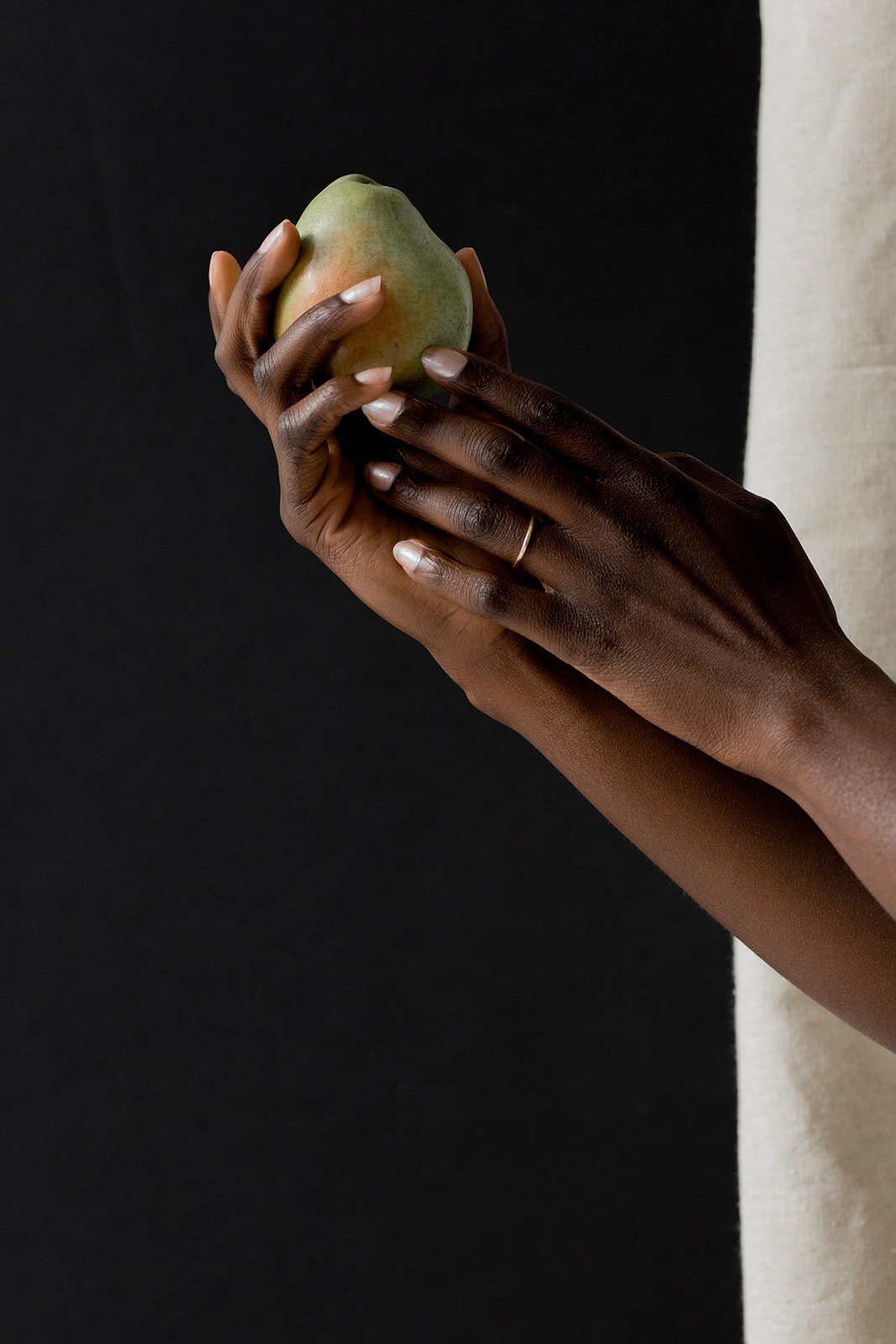
How To Practice Decentering Ourselves In Conversations
What Does It Mean To Center Yourself?
When we’re faced with a topic that makes us uncomfortable, it might feel easiest to deflect. This is especially true when the discussion is about something as deeply entrenched as race and the fight for racial equality.
For those of us who experience privilege, reminders of our complicity in systemic racism can bring about painful realizations, but it’s essential to understand that centering this pain is not the way to bring about change. Black voices have long been silenced because of white centering—it’s well past time to deal with the discomfort and practice real decentering.
Centering ourselves means that instead of truly listening to someone’s experience, we derail or challenge the conversation by sharing our own. This harmful refocusing is always unsolicited and is an attempt to protect our privilege and make ourselves feel comfortable.
“‘Centering is a clear indication that you are not listening to understand, but rather listening to reply.’”
This post on Conversations With explains it this way: “Centering is a clear indication that you are not listening to understand, but rather listening to reply.”
Most frequently, centering shows up on social media as a response that might “seem” well-intentioned, but is uninformed and harmful: If I share my own experience, even if it has nothing in common with the one I am commenting on, isn’t that a part of healing? Or, it shows up as overt gaslighting: But what about my experience—doesn’t that count at all?
If someone posts about their experience, trauma, or grief and doesn’t explicitly ask us to share ours, that’s our cue to listen, to pause before centering ourselves in a comment. It’s not the original poster’s job to hold space for how guilty we might feel, and in centering ourselves, we aid in the continued violence against marginalized people.
It doesn’t always have to be in response to someone directly, though. Centering can even be as simple as sharing a picture of a donation receipt online to show our followers how much, in dollars, we care. It might look like posting photos of ourselves protesting, as people who experience white privilege, if our motive is to get praise from our peers. It looks like adding to the noise without substantial behind-the-scenes effort. These things are the embodiment of privilege, especially if they come without working for real systemic change.
Why Centering Is Erasure
The Black Lives Matter movement is not about making people of privilege look like good activists—it’s about justice, equality, protection, and reparations for Black people. It’s not about the optics; it’s about the actions we take like donating, protesting, calling our representatives, voting, and holding our friends accountable.
Rachel Cargle, a public academic, writer, and lecturer, explains centering as a part of “The Toxic White Feminism Playbook”:
“[Centering] is the most common of all. White women get so caught up in how they feel in a moment of black women expressing themselves that they completely vacuum the energy, direction, and point of the conversation to themselves and their feelings. They start to explain why race is hard for them to talk about, what they think would be a better solution to the topic at hand, and perhaps what women of color can do to make it more palatable.”
“Centering can mean we’re trying to draw an equivalence that doesn’t exist.”
Centering ourselves in discussions around someone else’s lived experience is invalidating and harmful. Phrases that start with “As a [X]…” can be red flags that indicate someone wants to reroute the conversation. Women who experience white privilege might express a perceived shared experience by saying “As a woman…” This is important: womxn do experience discrimination, and it’s certainly a cause worth fighting for. But when that’s not specifically the conversation at hand, it can mean we’re trying to draw an equivalence that doesn’t exist.
Our painful experiences may be valid, but when they’re used as a tool to invalidate someone else’s experience, they become erasure.
How To Decenter Ourselves
Here are a few questions that I ask myself before vocalizing, posting, or commenting to help identify when I might be centering myself. These questions require honest answers and we might not like the answers we find. But we can use that discomfort as an impetus for growth.
Who is this for? Is it to make me feel better or less guilty? (If the answer is “this is so I can feel better,” do some reading about performative allyship).
Am I looking for someone to recognize me as a victim, or to extend sympathy towards me in a space that is not mine to begin with?
Am I using my own experience to tell someone about how they should feel?
Does what I’m saying change the topic of the conversation?
Am I using lots of first-person language (as in “my” or “I”) to convey my point? Would I still be saying this if the “me” part was excluded?
Am I responding to someone who has a different lived experience than me? Is that lived experience one of oppression or marginalization?
Ultimately, it comes down to recognizing when we are weaponizing our perspective to derail a conversation or to assuage our guilt. If we identify that something we’re about to say feels centering, let’s take a pause. Maybe there’s an action we can take offline, someone we can share our learnings with privately, a journal that we can write in. If we’ve already said it, let’s own up to it and commit to doing better.
How To Grieve Without Centering
It’s okay to be grieving right now. This grief is hundreds of years deep, and it must be recognized. For those of us who benefit from white privilege and are starting anti-racism work, we might be uncovering the grief, truly, for the first time. We might want to say “but not me!” because it’s easier to deny privilege than to accept that we’ve been part of the system. But the work being hard isn’t an excuse to not do it. And if it feels heavy, that’s because the work is heavy—and not about how “good” or “bad” it makes us feel.
“It’s okay to express your sadness privately in your own home, with your loved ones, in your journal, as long as you’re actively working for change.”
Again, Rachel Cargle, emphasizes that this movement is not about centering whiteness: “Anti-racism work is NOT a self improvement space for white people. If protecting bodies & empowering Black lives aren’t at the center of your work then you’re not here for Black people—you’re simply going through motions to make yourself feel better.”
Grief makes its home in our bodies, and caring for ourselves is essential in this moment. Unplug if you need to, but don’t lose sight of the real goals: justice, accountability, equality. It’s okay to express your sadness privately in your own home, with your loved ones, in your journal, as long as you’re actively working for change.
Most importantly, create space for your Black friends and family to experience this grief without burdening them with your own. Don’t center yourself and take up space in conversations you should instead be listening to.
Change must not be contingent on comfort—because our comfort zones are toxic if they systemically hold no comfort for others.
“Our comfort zones are toxic if they systemically hold no comfort for others.”
How To Take Action
A final note on centering: asking Black people “what can I do?” is often centering disguised as good intentions. It can be, in itself, a performance of saying “I care! I would totally do the work if only someone would tell me what to do!”
If you’re asking that question right now, ask the internet instead of individuals. Go here. Read these books. Listen to these podcasts. Pay attention (and money) to these educators. Join protests as a conscious ally, decenter yourself, protect your neighbors, and above all, do not stop fighting for change.
Emily Torres is the Editorial Director at The Good Trade. She’s a Los Angeles transplant who was born and raised in Indiana, where she studied Creative Writing and Business at Indiana University. You can usually find her reading or writing, caring for her rabbits, or practicing at the yoga studio.





